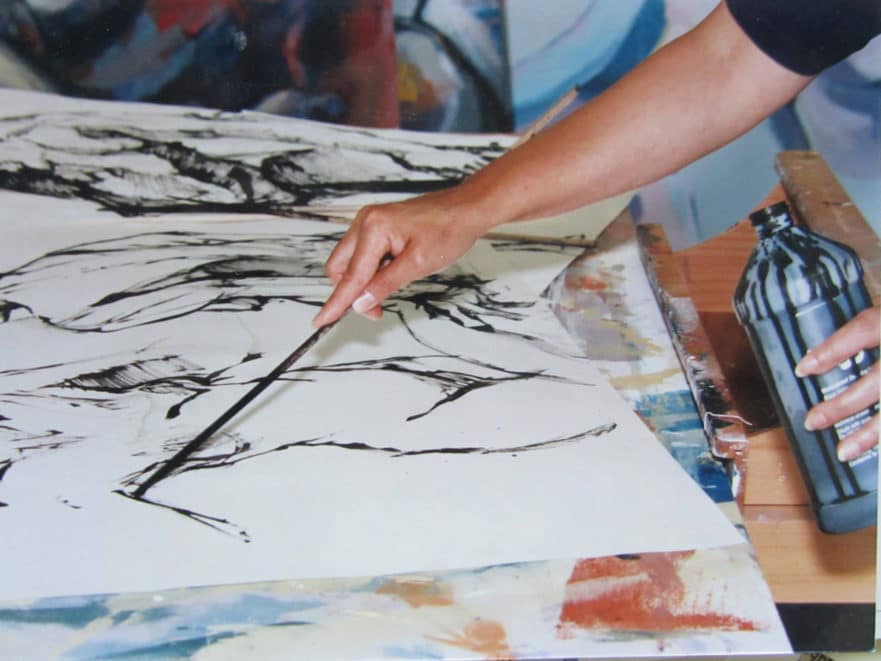Whether you are a writer, a painter, a choreographer, or any other creative…starting any work is difficult.
My art students often told me they experienced their greatest fear when facing a blank sheet of paper, or an untouched canvas. At that moment the pristine surface was full of possibilities…so they worried about what way was the RIGHT WAY to start? It is only the recognition that there are endless possibilities and you cannot address them all on one single sheet that will allow you to move. You must spoil the sheet’s perfection, by making some marks – likely crude marks, possibly poetic marks – but that is not important. Starting is important.
You simply set out to do a slice of work because you enjoy spending time in that terrain. In her book the Writing Life, author Annie Dillard describes this criteria with humor “A well-known writer got collared by a university student who asked, “Do you think I could be a writer?” “Well,” the writer said, “I don’t know…Do you like sentences?”
It is best not to concern yourself whether a masterpiece will evolve, or is evolving. From start to finish, many elements that appear to offer early promise will ultimately need to be buried or excised. Falling in love with a piece in its early stages can be a heavy burden, because that ardor will prevent you from being able to evaluate the work properly. You must be willing to sacrifice portions that previously thrilled you, in order to strengthen the whole piece.
Because you intuitively know that skill comes from practice, practice, and more practice – you persist in practicing. How long must you practice, you might wonder? Malcolm Gladwell, bestselling author of Outliers: The Story of Success, explains that researchers have provided an answer. “The emerging picture from such studies is that ten thousand hours of practice is required to achieve the level of mastery associated with being a world-class expert- in anything,” writes the neurologist Daniel Levitin.
If you truly wish to acquire skill in any area, you must put in a significant amount of time. You have find ways to set judgement aside for that period. Be patient with yourself, be faithful to your practice, and learn to find pleasure in the DOING (the practice, not the product). Start chalking off those hours. Do not foolishly concern yourself with marketing issues, first you must gain expertise, so I suggest you get started.



